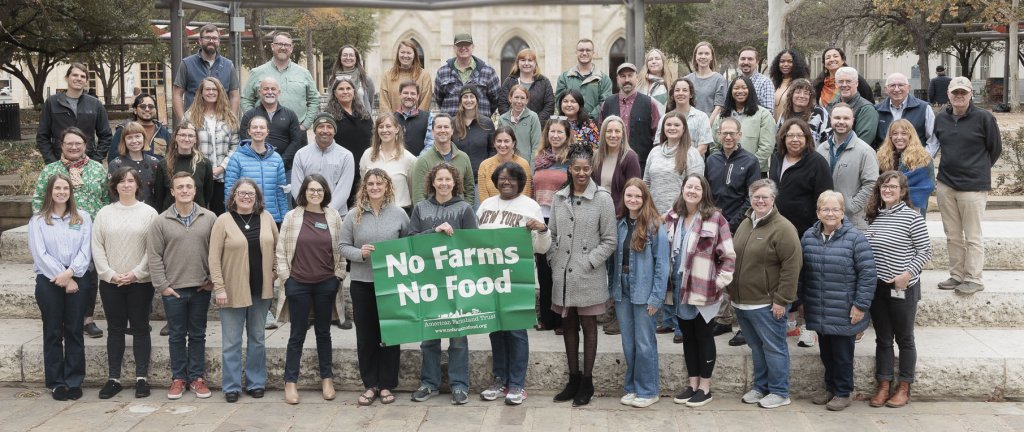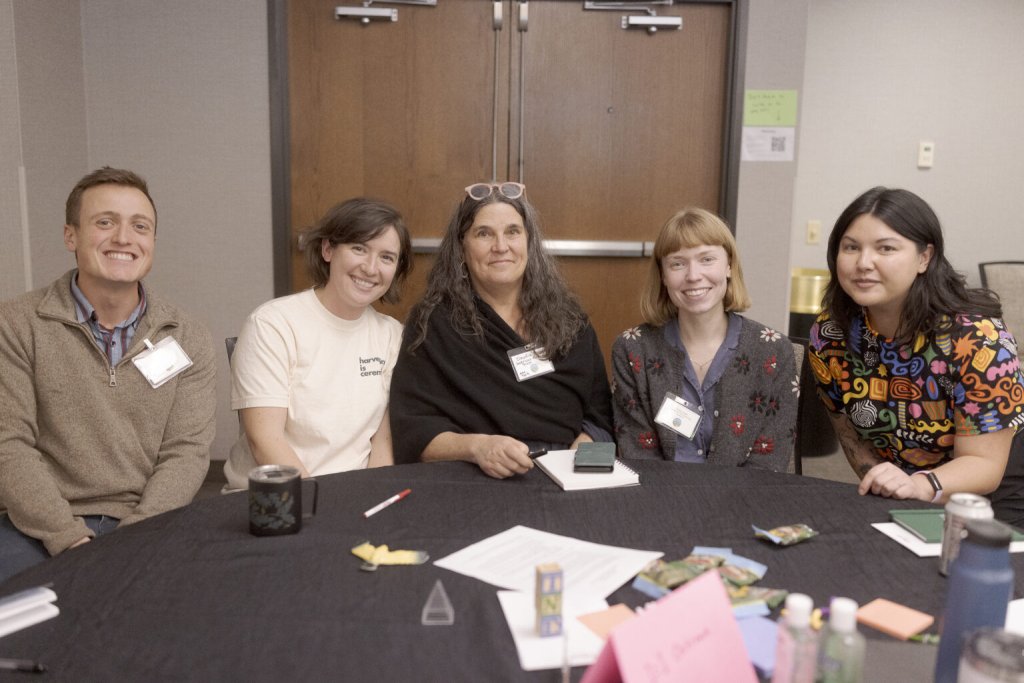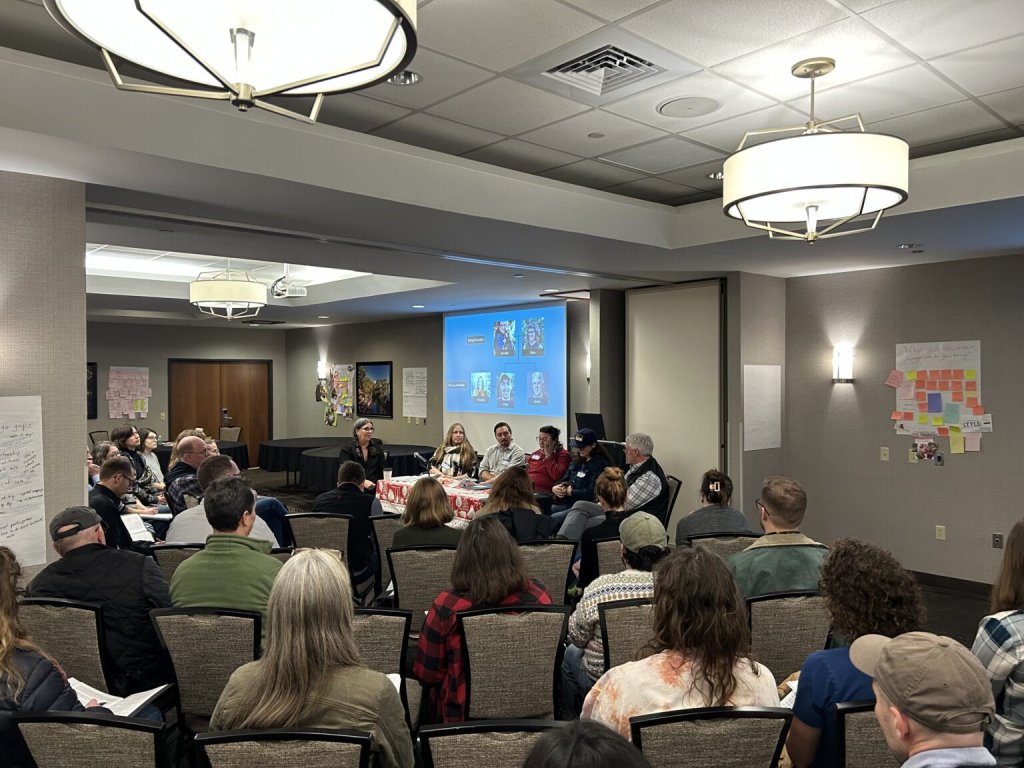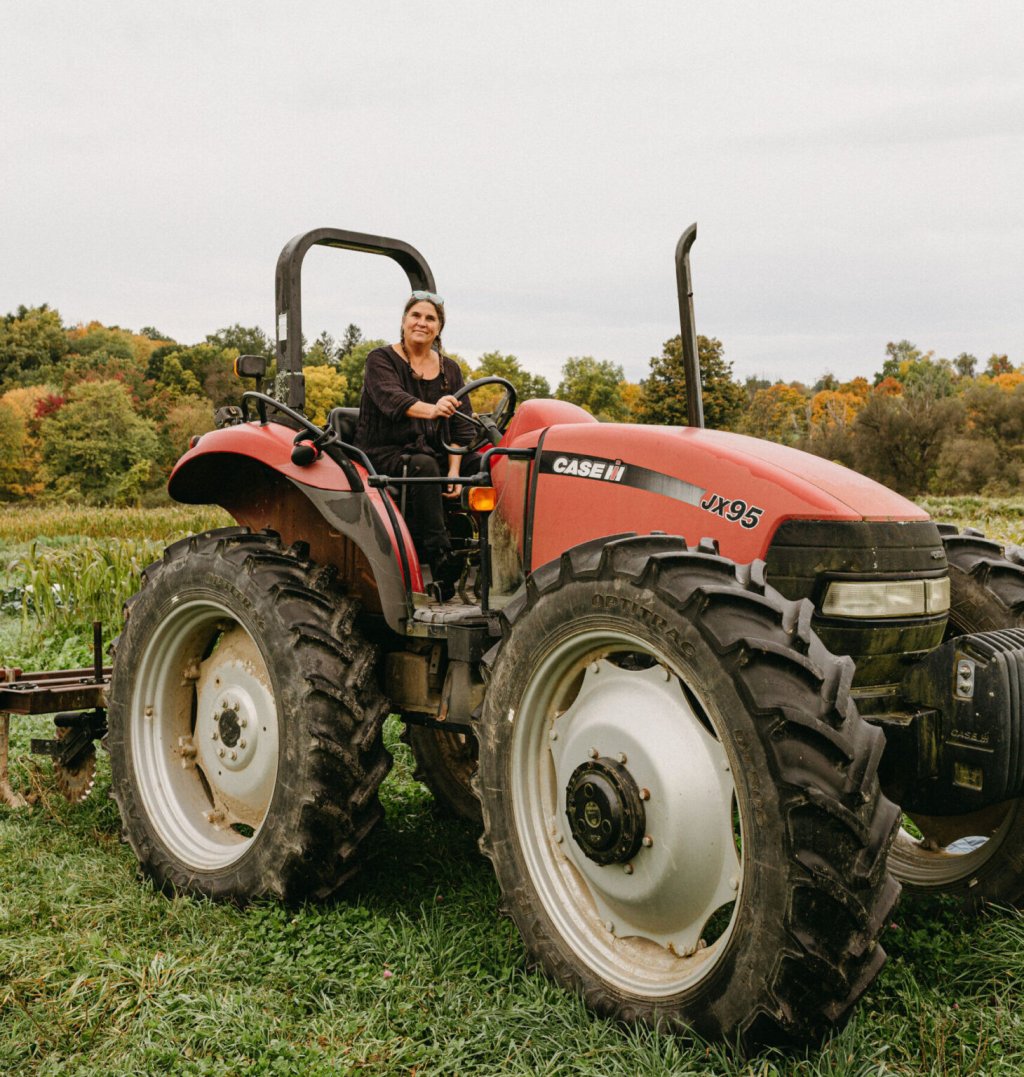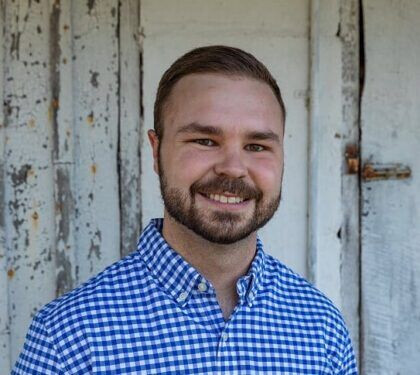On Farm Transfer, Conflict Resolution, and Good Communication
A Q&A with Claudia Kenny
Claudia Kenny is a vital member of the Farms for a New Generation team at American Farmland Trust, where she focuses most of her work on critical issues like farm transfer and land access. She has worked for decades as a mentor to new farmers, co-founded a local food cooperative in her hometown, and supported many projects that enhance community food security.
Prior to joining AFT, Claudia served for eight years as the statewide director of the New York State Agricultural Mediation Program, helping farm families navigate difficult conversations and dynamics. With a master’s degree in Conflict Analysis and Engagement, specializing in environmental conflicts, Claudia is a trained mediator, facilitator, and conflict coach. She and her husband also own and operate Little Seed Gardens, a 97-acre farm in Chatham, NY.
Recently, AFT’s Brooks Lamb caught up with Claudia for a quick Q&A after the Land Transfer Navigators training in San Antonio, Texas. In the conversation below, they discuss farm transition planning, conflict management, role playing exercises—and the importance of good, consistent communication.
Brooks Lamb: Thanks for taking some time to connect with me today, Claudia! How are you?
Claudia Kenny: For the most part, I’m doing well. We have a few inches of snow on the ground here at the farm, but I’m sensing spring around the bend. Seed packets are piled in boxes on the kitchen table and are being inventoried. First plantings are happening—seedings for onion and tomato transplants. My family is doubling down on winter projects as time for this kind of work will end soon, and I can hear some chainsaws whirling in the woods from my office. Trees are being culled for forest health. These seasonal habits and patterns are a real comfort.
Brooks: For sure. As tough as winter can be at times, it’s also peaceful. And your comments remind me that I should start my lettuce seeds soon…
The Urgent Work of Land Transfer Navigators
Brooks: We were just together in Texas for the annual Land Transfer Navigators in-person training. Can you tell me a little about this program and the training itself?
Claudia: Sure! AFT’s Land Transfer Navigators program, which the USDA Natural Resources Conservation Service generously supports, creates a national network of professionals at land protection partner organizations, and at AFT itself, to address challenges around farm transfer and land access. This work comes at a crucial time, given the rate of farmland and farm loss and the historic generational farmer gap.
In San Antonio, Navigators gathered for a 3-day immersive training to share and create knowledge, to build skills, and to build peer support, tapping into a “many minds” approach to robust solutions and problem solving.
More than 300 million acres of agricultural land are projected to change hands in the next two decades and many retiring farmers don’t have an identified successor, so this work is urgent. As a network, our purpose and passion are to preserve the possibility of a thriving future for a new generation of farmers while honoring the contributions of the retiring generation and collectively building a sustainable, secure, and resilient agriculture.
Brooks: That work is so important. I know it may seem cliche to say this, but it feels more needed now than ever before.
Brooks Lamb: Thanks for taking some time to connect with me today, Claudia! How are you?
Claudia Kenny: For the most part, I’m doing well. We have a few inches of snow on the ground here at the farm, but I’m sensing spring around the bend. Seed packets are piled in boxes on the kitchen table and are being inventoried. First plantings are happening—seedings for onion and tomato transplants. My family is doubling down on winter projects as time for this kind of work will end soon, and I can hear some chainsaws whirling in the woods from my office. Trees are being culled for forest health. These seasonal habits and patterns are a real comfort.
Brooks: For sure. As tough as winter can be at times, it’s also peaceful. And your comments remind me that I should start my lettuce seeds soon…
Navigating Conflict in Farm Transitions
Brooks: During the training, you and our colleague Addie Candib co-led a day-long session on conflict management. As someone who was sitting in the audience, furiously scribbling notes that I’ll refer to in both my professional and personal life, I found it very helpful. Can you tell us about that day and the goals you and Addie had for everyone who attended?
Claudia: When we started to plan for this training, we were really thinking about practical applications. We chose foundational skills and frameworks that we could introduce to the group, skills that could be useful in their work with farmers and landowners. We particularly focused on skills for difficult conversations.
How we think about and respond to conflict or difficult conversations on a personal level is important. After all, our habits for responding to conflict influence how we interpret and manage conflicts not only in our personal lives, but in our work lives as well. How people handle these situations depends on their upbringing, experiences, values, culture, and temperament.
Conflict will be part of most farm succession scenarios, and it isn’t positive or negative. It is our reaction to conflict that determines whether the consequence will be constructive or destructive. It is not conflict itself that hurts our relationships—it’s the way we approach it, manage it, and communicate it. We hoped folks would come away with frameworks for constructively engaging difficult aspects of a farm transition conversation and skills for getting comfortable with conflict.
Bringing Conflict to Life through Role-Playing
Brooks: I like the way you phrased that. Conflicts happen, and it’s how we manage them that matters. You led a “role-playing” activity during the training that centered on conflict, where some of AFT’s staff played the part of a farm family facing a farm transition. You helped guide them through difficult conversations over the course of a 2-hour exercise. Candidly, I’ve often thought that role-playing exercises can be cheesy… But this one wasn’t. It was insightful, and I hear that you received lots of positive feedback. What made this exercise such a success?
Claudia: The goal of the role play was to breathe life into the skills and frameworks we “taught” in the morning session. We also wanted to highlight some of the challenges in the farm transition context. Our hope was to show the difficult parts of the conversation, the parts about relationships, transitions, and change.
We chose to simulate a facilitator experience. I played that facilitator “role,” but I intentionally did not know the whole story before we began, and it was unfolding for me and the family and the audience over the course of our conversation. Our colleagues filled the farm family roles: an aging farming couple, a child and their spouse, and another unmarried child. They were given a briefing sheet in advance on their characters, all with different sets of facts and instructions. They couldn’t see others’ background info beyond their basic relationships.
As the facilitator, I used active listening, reflecting what was most important to each party, and asked clarifying questions like “can you tell me more?” Using these skills, I was able to get quite a bit of information and emotion out on the table. With a clear goal of the family figuring out a “next step,” we ended the session with a few agreements around what each participant would do before the next conversation. We made progress.
Over the course of the conversation, we learned that the married child living on the farm felt they weren’t appreciated for all that they’ve contributed in labor. We learned that the unmarried child was scared that they’d be fully financially responsible for their parents if plans fell apart. We also discovered that the older generation couple had vastly different ideas about how they envisioned their future. One wanted to take more vacations. The other wanted to be on the tractor whenever possible.
After the role-playing exercise finished, we debriefed with the characters and audience. During that debrief, we learned that one of the “older” characters was secretly worried that their spouse may have some serious health issues. They didn’t share this information with the group during the exercise, and no one else spoke of it either. So even after two hours of discussion, there were still important facts and feelings that were missing! It’s typical for it to take several conversations before a full picture of all concerns comes into focus for the group.
We heard from many people that the exercise was helpful, particularly since it revealed a combination of personal, economic, and emotional concerns and because it didn’t wrap everything up neatly in a bow. Mutual understanding of “where you are now” and “where you want to be” needs to be built before the “how do we get there” conversation can happen. This exercise helped show that.
Brooks: Wow. It’s clear that a ton of time and thought went into the exercise, and I’m glad so many people found it useful.
Looking Ahead
Brooks: Claudia, thanks so much for taking the time to connect with me. Is there anything else about the San Antonio training or the Land Transfer Navigators program that you’d like to share?
Claudia: I love this quote, and I am not sure whose it is, but it goes something like this: “The biggest assumption we make about communication is that it is happening.”
Slowing things down, checking for understanding, resting attention with the speaker… These are simple and powerful ways to build connection. As Land Transfer Navigators, we can bring presence and intention to conversations about the future of farms, and we can have a meaningful impact.
It was exciting to spend a few days with such an inspired group of people devoted to supporting America’s working lands and working people. There was a lot of creativity in the room, and I look forward to continuing our work and impact together over the next few years!
If you’re interested in learning more about the Land Transfer Navigators program, please visit: https://farmland.org/land-transfer-navigators/

